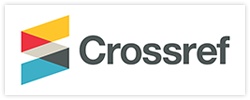Drone simulation for agriculture and LoRa based approach
DOI:
https://doi.org/10.31763/iota.v1i4.501Keywords:
Automatic Spraying, drone, internet-server, monitoring, power consumptionAbstract
Spraying appropriately and regularly will help develop rice plants' growth and development to produce superior rice. These pesticides' spraying is sometimes uneven because of the vast land, limited human labor, and several other factors. that appropriate technology is needed that helps in the process of spraying rice pesticides using drones. Drones are deemed appropriate in spraying its advantages, among others, more effective, reducing the involvement of humans in work. Drones help track consistently and in detail the part of agricultural land that will be sprayed with pesticides, unlike humans. It is more automatic in monitoring, with the camera used on the drone can see the growth of rice plants directly and do recording or real-time connecting to the application server or IoT. Besides spraying pesticides, regular monitoring of plants can be done with drones. This study uses a UAV simulation for mapping the location of pesticide spraying, the results of contributions to large areas, and analysis of drone power consumption, which means allocating Drones to the area of land being managed.












